Background
Thomas Reade Rootes was born on April 10, 1823, in Jefferson County, Georgia, United States. He was the son of John Addison and Sarah Robinson Rootes Cobb.

Athens, GA 30602, United States
Thomas graduated first in the class of 1841 from the University of Georgia.

https://www.amazon.com/General-Digested-Index-Georgia-Reports/dp/1345732430/ref=sr_1_3?qid=1579253244&refinements=p_27%3AThomas+Read+Rootes+Cobb&s=books&sr=1-3&text=Thomas+Read+Rootes+Cobb
1852
congressman lawyer military politician author
Thomas Reade Rootes was born on April 10, 1823, in Jefferson County, Georgia, United States. He was the son of John Addison and Sarah Robinson Rootes Cobb.
Thomas graduated first in the class of 1841 from the University of Georgia and was admitted to the Athens bar the following year.
Thomas Reade Rootes Cobb, whose father had lost all of his money during the depression of the late 1830s, was assistant secretary to the Georgia Senate during the late 1840s and later vice-president of a temperance society. From 1849 to 1857, he was a reporter for the state Supreme Court, and he codified the state’s legal statutes prior to the Civil War. Cobb codified the laws of the state of Georgia in 1851.
He was also the author of 'An Inquiry into the Law of Negro Slavery' (1858), a most influential defense of slavery.
During the late 1850s, while his brother urged loyalty to the Union and compromise on slavery, he crusaded for secession, his speeches strongly influencing the Georgia general assembly and the state's citizens. At the state secession convention of 1861, he advocated the formation of the Confederacy. In time, he was appointed to the Provisional Confederate Congress and helped write the new nation's constitution.
He also served as chair of the Committee on Printing and was active in the establishment of the judicial system for the new nation. Soon after the war broke out, he surprised many by rejecting further political posts to recruit a military unit in Georgia. Though lacking military experience, he received a colonelcy and command of a mixed force of infantry and cavalry afterward known as Cobb's Legion. He served diligently in North Carolina, on the Virginia peninsula, and in the James River fortifications. His lack of military training was a handicap but he soon became a proficient soldier. In September 1862, his men suffered heavily at Antietam. 6 weeks later he left the remnants of his Legion when he was given a brigade in McLaws' division in the Army of Northern Virginia.
On December 13, 1862, his command, Cobb's "Irish Brigade," held the now-famous stone wall and sunken road near the top of Marye's Heights at Fredericksburg, Virginia. Late in the day, while his troops repulsed one of 6 attacks on their position, Cobb's thigh was lacerated by shrapnel. His femoral artery severed, he bled to death after being carried to the rear. Despite medical aid, he died in a house on the battlefield.
Thomas Reade Rootes Cobb was one of antebellum Georgia's foremost legal authorities and most outspoken advocates of slavery and of secession from the Union. He fought for the Confederacy as a brigadier general and was killed at the Battle of Fredericksburg in 1862.
He established the Lumpkin Law School with the aid of his father-in-law, Joseph Henry Lumpkin, a state supreme court justice for whom the school was named.
In 2004 Cobb's former house generated controversy in Athens. Built-in 1839 and presented to Cobb as a gift from his father-in-law, the Federal-style mansion was saved from a wrecking ball in 1985 and moved from Prince Avenue in Athens to Stone Mountain Park, where it languished. The Georgia Trust and the Athens-Clarke Heritage Foundation joined forces with the Watson-Brown Foundation to return the house to Athens in 2004. The move was applauded by preservationists but was opposed by some local residents, who questioned the recognition it brings to the pro-slavery advocate who owned the home. The renovation was completed in 2007, and the home is now open as a house museum and conference site.
Cobb was a deeply religious man and a leader in the Presbyterian church in Athens. His legal views reflected his puritanical religious beliefs and a desire for restraint and self-control. He supported the prohibition of alcohol and prostitution, and he implemented Bible reading in area schools. Cobb advocated forced marriage for couples caught engaging in premarital sex.
After the election of United States President Abraham Lincoln in 1860, Cobb renounced his Unionist leanings and became an ardent supporter of secession. On November 12, 1860, he delivered a cogent speech in support of immediate secession before the state legislature in Milledgeville. He believed that the Republicans' victory along strict sectional lines would shift the balance of national power irreversibly to the North, reducing the South to a powerless minority incapable of defending both slavery and its way of life. Afterward, Cobb and his brother Howell campaigned vigorously around the state for secession.
Despite Cobb's arguments that the concept of slavery was good and formed the foundation of all great civilizations, he deemed only African slavery to be acceptable in practice because he believed that God intended for blacks to be inferior to whites. Enslavement allowed white Christian masters to "improve" their slaves. While most of Cobb's proslavery defense was discredited after the Civil War, some of its legal components continued to influence judicial decisions more than a century after emancipation.
Early in Cobb's career, he developed a reputation as a talented constitutional lawyer with a great capacity for work. This was demonstrated in the 20 volumes of Georgia supreme court reports he edited and in the digest of Georgia laws he published in 1851. The latter has been described as "unique in America" for its methodology and comprehensiveness.
On January 9, 1844, Thomas married Marion Lumpkin, by whom he six children.
1788-1855
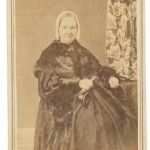
1792-1865
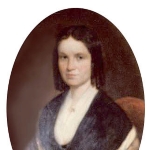
1822-1897
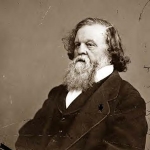
1815-1868
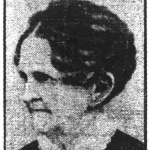
1818-1888
1820-1900
1826-1893
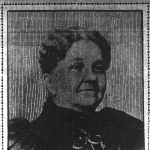
1828-1899
1831-1906

1844-1857
1846-1915
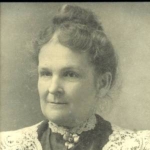
1848-1911
1850-1851
1852-1853
1860-1919
Brigadier General
